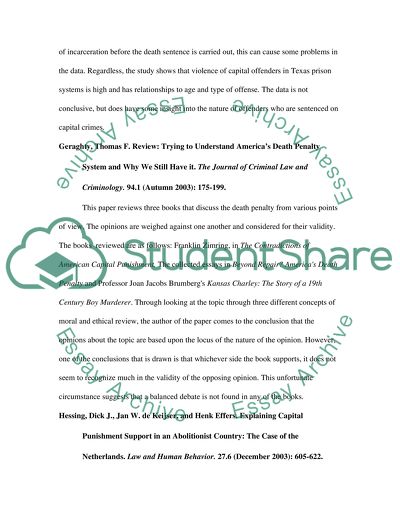Cite this document
(“Capital Punishment Annotated Bibliography Example | Topics and Well Written Essays - 1750 words”, n.d.)
Retrieved from https://studentshare.org/literature/1419417-capital-punishment
Retrieved from https://studentshare.org/literature/1419417-capital-punishment
(Capital Punishment Annotated Bibliography Example | Topics and Well Written Essays - 1750 Words)
https://studentshare.org/literature/1419417-capital-punishment.
https://studentshare.org/literature/1419417-capital-punishment.
“Capital Punishment Annotated Bibliography Example | Topics and Well Written Essays - 1750 Words”, n.d. https://studentshare.org/literature/1419417-capital-punishment.


